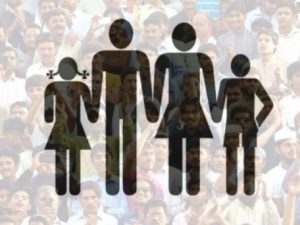In the Nemi Chandra Jain memorial lecture delivered in New Delhi on 16 August, Romila Thapar explains the historical context that forms background to contemporary definitions of the “Other” and the “Self”. The “Self” in every culture, she argues, although different, is defined viz-a-viz the “Other”, a dynamic category, which transforms with the changes that the particular society is subjected to over time, socially and culturally. This “Otherness” is often used to marginalise or ghettoise people in cultures across the world since years, of which today’s hoardes of refugees are a result. Thapar adds that contemporary Indian society also falls back on colonial thinking which sharpened the definition of “otherness”, based on the concept of race, giving rise to flawed categories like “civilised” and “primitive”. Therefore, questioning the whole pettiness of the idea of the “Other”, she says, “those whom we see as different, often help us define ourselves, individually and socially”.




